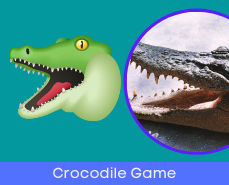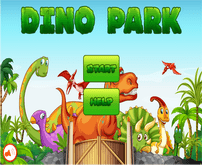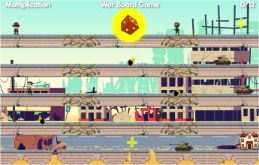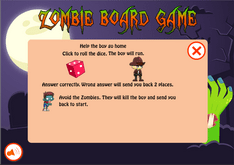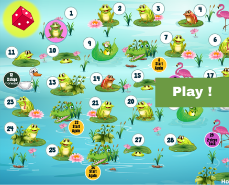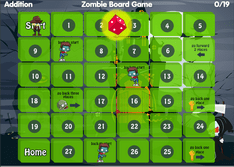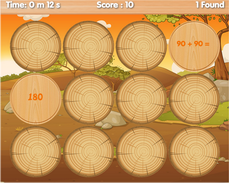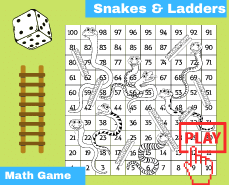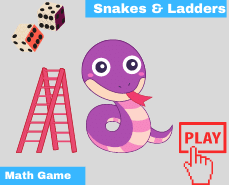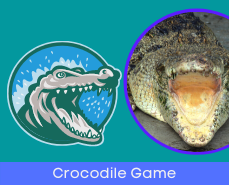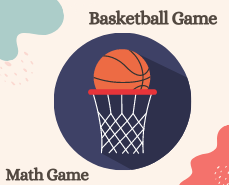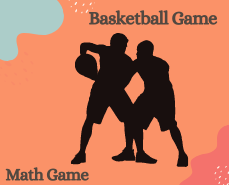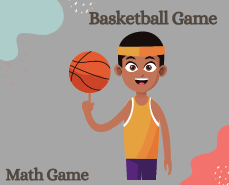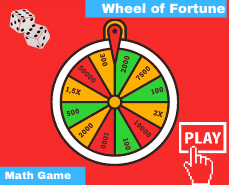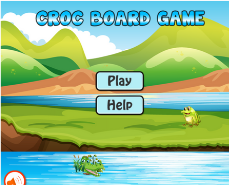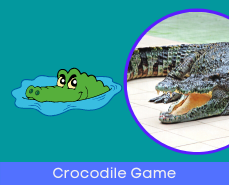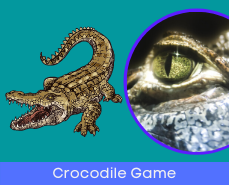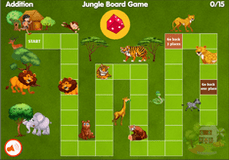There is No Such Thing as a Perfect Kindergarten
Kindergarten serves as a crucial stepping stone in a child's educational journey, laying the foundation for their future academic and social success. However, the notion of a "perfect" kindergarten is elusive, as it's fraught with complexities and challenges that educators, parents, and policymakers continuously grapple with.
Introduction: Defining the Perfect Kindergarten
In an ideal world, a perfect kindergarten would cater to the diverse needs of every child, providing a nurturing environment that fosters their physical, cognitive, emotional, and social development. However, achieving such perfection is an ongoing endeavor marked by various hurdles and trade-offs. continue below >>
The Importance of Early Childhood Education
Early childhood education is widely recognized as a critical period for brain development and learning. Kindergarten plays a pivotal role during this formative stage, shaping children's attitudes towards learning, social interaction, and self-discovery.
Early childhood education holds immense significance in shaping the trajectory of a child's future. During the early years of life, children experience rapid brain development and form the foundation for all subsequent learning and development. Thus, investing in quality early childhood education is crucial for laying the groundwork for academic success, social-emotional well-being, and lifelong learning.
Research consistently demonstrates the long-term benefits of early childhood education. Children who participate in high-quality early learning programs exhibit improved cognitive skills, language development, and school readiness compared to their peers who do not have access to such opportunities. Moreover, early education can help narrow the achievement gap, particularly for children from disadvantaged backgrounds, by providing them with the skills and support they need to thrive academically.
Beyond academic outcomes, early childhood education also plays a pivotal role in fostering social-emotional competence. In a nurturing and supportive environment, children learn essential social skills such as cooperation, empathy, and conflict resolution, which are critical for building positive relationships and navigating the complexities of the social world. These early experiences lay the groundwork for healthy social development and emotional resilience throughout life.
Furthermore, early childhood education supports parents and families in their roles as primary caregivers and educators. By partnering with families and providing resources, guidance, and support, early childhood programs empower parents to create enriching home environments that reinforce learning and development. This collaboration between educators and families establishes a strong foundation for children's overall well-being and success.
In essence, early childhood education is not just about preparing children for school; it is about setting them on a path towards lifelong learning, success, and fulfillment. By investing in quality early learning opportunities for all children, we can ensure a brighter future for individuals, families, and society as a whole.
Challenges in Achieving Kindergarten Perfection
Diversity in Children's Needs
Children enter kindergarten with a myriad of backgrounds, abilities, and learning styles. Catering to the individual needs of each child while maintaining a cohesive learning environment poses a significant challenge for educators.
Varied Teaching Styles and Philosophies
Educators bring their unique teaching styles and philosophies into the classroom, reflecting a diverse range of approaches to early childhood education. Balancing these differences while adhering to educational standards can be daunting.
Components of an Effective Kindergarten
Qualified and Caring Teachers
The cornerstone of any successful kindergarten is its teaching staff. Qualified and empathetic teachers who understand child development play a pivotal role in creating a positive and supportive learning environment.
Safe and Stimulating Environment
A safe and stimulating physical environment is essential for children to thrive. Kindergarten facilities should be conducive to exploration, creativity, and play, with ample resources for hands-on learning experiences.
Curriculum that Fosters Holistic Development
A well-rounded curriculum that integrates academic subjects with social-emotional learning, creative arts, and physical activities is key to nurturing the whole child. Flexibility and adaptability are essential to accommodate diverse learning styles and interests.
Common Misconceptions About Kindergarten Perfection
Common misconceptions about kindergarten perfection often stem from a narrow understanding of what constitutes a successful early childhood education experience. Here are some of the most prevalent misconceptions:
-
Academic Focus: One common misconception is that kindergarten perfection is solely determined by academic achievements such as early reading or math skills. While academic readiness is important, a perfect kindergarten embraces a holistic approach that prioritizes social-emotional development, creativity, and critical thinking alongside academic skills.
-
One-Size-Fits-All: Another misconception is the belief that there is a universal standard for kindergarten perfection that applies to all children. In reality, children come from diverse backgrounds and possess unique strengths, interests, and learning styles. A perfect kindergarten recognizes and celebrates this diversity, offering personalized learning experiences tailored to individual needs.
-
Rigidity in Curriculum: Some may mistakenly equate perfection in kindergarten with a rigid, one-size-fits-all curriculum that leaves little room for exploration and play. However, research suggests that play-based learning approaches are highly effective in promoting children's cognitive, social, and emotional development. A perfect kindergarten fosters a dynamic learning environment where children are encouraged to explore, experiment, and inquire freely.
-
Focus on Testing: There is a misconception that kindergarten perfection is measured solely by standardized test scores or academic benchmarks. While assessments have their place in evaluating progress, a perfect kindergarten recognizes the limitations of standardized testing in capturing the full range of children's abilities and accomplishments. Instead, it values a comprehensive approach to assessment that considers multiple facets of development.
-
Parental Pressure: Some parents may mistakenly believe that a perfect kindergarten is characterized by intense academic pressure and a relentless focus on achievement. However, research suggests that excessive pressure during the early years can have detrimental effects on children's well-being and motivation. A perfect kindergarten cultivates a supportive and nurturing environment where children feel valued, respected, and encouraged to explore their interests at their own pace.
Strategies for Creating an Optimal Kindergarten Experience
Individualized Learning Approaches
Recognizing and responding to the unique strengths and challenges of each child through personalized learning plans promotes greater engagement and achievement.
Collaboration Between Teachers and Parents
Effective communication and collaboration between educators and parents facilitate a holistic approach to supporting children's learning and development both at home and in school.
Continuous Professional Development for Educators
Investing in ongoing training and professional development opportunities for teachers ensures they remain abreast of the latest research and best practices in early childhood education.
The Role of Technology in Modern Kindergartens
While technology can enhance learning experiences and facilitate communication, its integration into kindergarten settings must be approached thoughtfully, ensuring it complements rather than replaces hands-on, experiential learning opportunities.
The Impact of Societal Expectations on Kindergarten Perfection
Societal pressures to excel academically from an early age can undermine the play-based, child-centered approach that is foundational to kindergarten education. It's essential to strike a balance between academic rigor and nurturing children's innate curiosity and creativity.
Conclusion: Embracing Imperfection in Kindergarten
In conclusion, while the pursuit of perfection in kindergarten is admirable, it's essential to recognize that perfection is subjective and elusive. Instead of striving for an unattainable ideal, educators, parents, and policymakers should focus on creating inclusive, nurturing, and developmentally appropriate learning environments that celebrate each child's unique journey.
FAQs
-
What are the key components of a successful kindergarten?
- A successful kindergarten comprises qualified teachers, a safe and stimulating environment, and a holistic curriculum that promotes the overall development of children.
-
How can parents support their child's kindergarten experience?
- Parents can support their child's kindergarten experience by fostering a love for learning at home, maintaining open communication with teachers, and actively engaging in their child's education.
-
What role does play have in kindergarten education?
- Play is a fundamental aspect of kindergarten education as it promotes creativity, problem-solving skills, social interaction, and emotional development.
-
How can kindergarten teachers cater to the diverse needs of students?
- Kindergarten teachers can cater to the diverse needs of students by implementing individualized learning approaches, providing differentiated instruction, and fostering a supportive classroom environment.
-
Why is it important to embrace imperfection in kindergarten?
- Embracing imperfection in kindergarten allows educators to focus on the holistic development of each child rather than striving for unattainable standards. It promotes inclusivity, creativity, and resilience in learning.
![]() Addition math practice - pirates at sea game
Addition math practice - pirates at sea game
![]() Counting from 1 to 3 - Rally car race game
Counting from 1 to 3 - Rally car race game
![]() Counting up to 10 - Catapult game
Counting up to 10 - Catapult game
![]() Counting up to 5 - Pirate game
Counting up to 5 - Pirate game
![]() Learn numbers beyond 20 - rally game
Learn numbers beyond 20 - rally game
![]() Patterns - Pirates at sea game
Patterns - Pirates at sea game
![]() Skip - counting - Pirate game
Skip - counting - Pirate game
![]() Spelling numbers up to ten - Rally car race game
Spelling numbers up to ten - Rally car race game
![]() Spelling numbers up to 20 - Moonshoot voyage game
Spelling numbers up to 20 - Moonshoot voyage game
![]() Subtraction - Car rally game
Subtraction - Car rally game
![]() Time related facts - Moonshoot voyage game
Time related facts - Moonshoot voyage game
![]() Ways to make numbers - Moonshoot voyage game
Ways to make numbers - Moonshoot voyage game
![]() Counting from 1 to 10 and addition game - Penalty shoot game
Counting from 1 to 10 and addition game - Penalty shoot game
![]() Counting Tally Marks Memory Game
Counting Tally Marks Memory Game
- Counting 1 to 10
- Counting 11 to 20
- Counting 21 to 30
- Counting by tens, fives and fours up to 100
- Counting by twos
- Counting from 30 to 100
- Even and odd numbers
- Ordinal numbers
![]() Spelling Numbers from 1 to 6 Memory game with pictures
Spelling Numbers from 1 to 6 Memory game with pictures
![]() Spelling Numbers from 7 to 12 Memory game with pictures
Spelling Numbers from 7 to 12 Memory game with pictures
![]() Addition memory game with pictures for Pre - K and Kindergarten
Addition memory game with pictures for Pre - K and Kindergarten
![]() Addition memory game for Pre - K and Kindergarten
Addition memory game for Pre - K and Kindergarten
![]() Addition game - Audio game adding numbers - matching answers
Addition game - Audio game adding numbers - matching answers
![]() Addition snakes and ladders game for Pre-K and Kindergarten
Addition snakes and ladders game for Pre-K and Kindergarten
![]() Addition Game - Basketball game
Addition Game - Basketball game
![]() Addition Game -Penalty shoot game
Addition Game -Penalty shoot game
![]() Addition Game- Fling the teacher game
Addition Game- Fling the teacher game
![]() Snakes and ladders addition game for Pre-k and Kindergarten
Snakes and ladders addition game for Pre-k and Kindergarten
![]() Subtractions Game- En garde Duel Game
Subtractions Game- En garde Duel Game
![]() Subtractions Game- Memory Game
Subtractions Game- Memory Game
![]() Fractions with pictures memory game
Fractions with pictures memory game
![]() Shapes - Triangle , Pentagon, Hexagon, Square ...... memory game
Shapes - Triangle , Pentagon, Hexagon, Square ...... memory game
![]() Geometry- Shapes: forming a Circle (sphere) puzzle game
Geometry- Shapes: forming a Circle (sphere) puzzle game
![]() Geometry - shapes: create a hexagon from the puzzle
Geometry - shapes: create a hexagon from the puzzle
![]() Geometry- Shapes : create a square from the squares in the puzzle
Geometry- Shapes : create a square from the squares in the puzzle
![]() Counting from 1 to 10 and addition game- Walk the plank game
Counting from 1 to 10 and addition game- Walk the plank game
![]() Place value of numbers Hendreds, Tens, Units memory game
Place value of numbers Hendreds, Tens, Units memory game
![]() Number rearrangement Game- Arrange in order- walk the plank game
Number rearrangement Game- Arrange in order- walk the plank game
![]() Comparisons Game- En Garde Duel Game
Comparisons Game- En Garde Duel Game
![]() Geometry Game- Fing the teacher game
Geometry Game- Fing the teacher game
![]() Missing Number Game -Penalty shoot game
Missing Number Game -Penalty shoot game
![]() Subtraction Game 1 -10- En gard duel game
Subtraction Game 1 -10- En gard duel game
![]() Subtraction Game 1 - 10 - Fling the teacher game
Subtraction Game 1 - 10 - Fling the teacher game
![]() Subtraction Game - Basketball game
Subtraction Game - Basketball game
![]() Subtraction Game - Fling the teacher
Subtraction Game - Fling the teacher
![]() Telling the time game - memory game
Telling the time game - memory game
![]() Number Spelling Game - Memory Game
Number Spelling Game - Memory Game
![]() Number Spelling Game - Walk the plank game
Number Spelling Game - Walk the plank game
![]() Numbers above ten fling the teacher game
Numbers above ten fling the teacher game
![]() Numbers above ten football game
Numbers above ten football game
![]() Numbers above ten Grade or no Grade Game
Numbers above ten Grade or no Grade Game
![]() Numbers above ten walk the plank game
Numbers above ten walk the plank game
![]() Even or Odd numbers basketball game
Even or Odd numbers basketball game
![]() Even or Odd numbers fling the teacher game
Even or Odd numbers fling the teacher game
![]() Even or Odd numbers football game
Even or Odd numbers football game
![]() Even or Odd numbers Grade or No Grade game
Even or Odd numbers Grade or No Grade game
![]() Even or Odd numbers Walk the Plank game
Even or Odd numbers Walk the Plank game
![]() Number line Fling the teacher game
Number line Fling the teacher game
![]() Number line Walk the Plank game
Number line Walk the Plank game
![]() Fractions Fling the Teacher game
Fractions Fling the Teacher game
![]() Fractions Grade or no Grade game
Fractions Grade or no Grade game
![]() Mixed Math Operations - Basketball Game
Mixed Math Operations - Basketball Game
![]() Mixed Math Operations - En Garde Duel Game
Mixed Math Operations - En Garde Duel Game
![]() Mixed Math Operations - Grade or no Grade Game
Mixed Math Operations - Grade or no Grade Game
![]() Mixed Math Operations - MCQ Game
Mixed Math Operations - MCQ Game
![]() Mixed Math Operations - Walk the Plank Game
Mixed Math Operations - Walk the Plank Game
![]() Subtractions - En Garde Duel Game
Subtractions - En Garde Duel Game
![]() Subtractions - Basketball Game
Subtractions - Basketball Game
![]() Subtractions - Grade or no Grade Game
Subtractions - Grade or no Grade Game
![]() Statistics grade or no grade Game
Statistics grade or no grade Game

